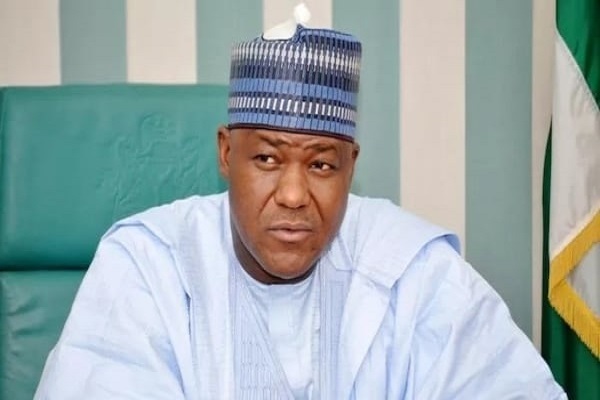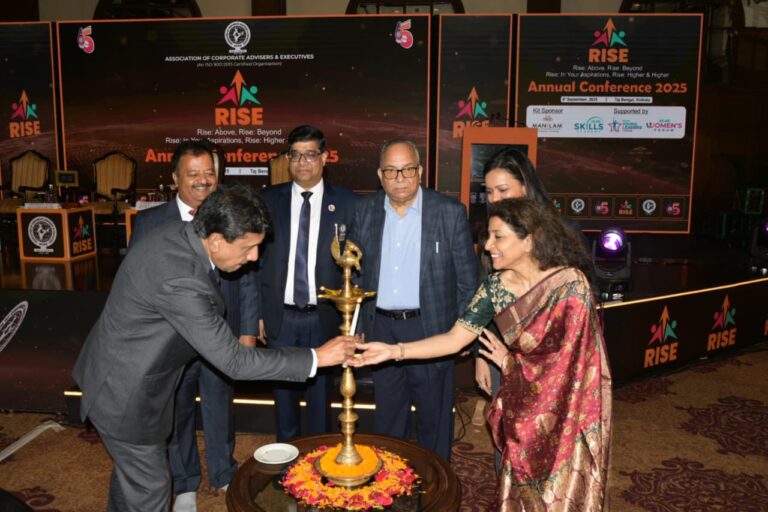By Nicholas Kalu,The Nation
Copyright thenationonlineng

Former Speaker of the House of Representatives, Rt. Hon. Yakubu Dogara, on Tuesday, said President Bola Tinubu inherited a deeply troubled economy riddled with “economic debris.”
Dogara, while delivering the maiden Distinguished Parliamentarian Lecture organized by the House of Representatives Press Corps at the National Assembly Complex, Abuja, listed excessive deficit financing through Ways and Means, dual exchange rates that enriched a few, and crude oil forward sales tied to foreign loans among the challenges.
He described Tinubu’s sweeping tax reforms as the most audacious overhaul of Nigeria’s fiscal framework in decades, urging the government to ensure transparency and sustained implementation to earn public trust.
“By the time President Tinubu took office, N22.7 trillion had been printed and injected into the economy, destroying the value of the naira. Some anointed people were making hundreds of millions off forex allocations without producing any goods or services whatsoever,” Dogara said.
He argued that such structural distortions made urgent reforms inevitable.
“From day one, it was clear that something urgent, nay revolutionary, must be done to prevent our economy from imploding,” he added, stressing that the President had acted with courage despite strong opposition.
His lecture, titled “Navigating Tax Reform in Nigeria: Insights on President Tinubu’s Policies”, examined the origins, scope, and expected impact of the tax reforms encapsulated in the Nigeria Tax Act (NTA) 2025 and related legislation.
Dogara outlined the key provisions of the reforms, which consolidate 16 federal tax statutes into four principal Acts:
Nigeria Tax Act (NTA) 2025: Consolidates multiple tax laws into a unified framework, expands the tax base to cover digital services and virtual currencies, and introduces a 15% minimum effective tax rate for large companies.
Nigeria Tax Administration Act (NTAA) 2025: Modernizes assessment, collection, and compliance rules, introduces simplified filing for low-income earners, mandates the use of unified Taxpayer Identification Numbers (Tax IDs), and establishes a Tax Ombudsman’s office.
Nigeria Revenue Service (Establishment) Act (NRSEA) 2025: Establishes the Nigeria Revenue Service to replace the FIRS, with expanded powers and mandatory transparency reporting.
Joint Revenue Board (Establishment) Act (JRBEA) 2025: Harmonizes federal-state revenue sharing and coordinates dispute resolution through a Tax Appeal Tribunal and Ombudsman.
According to him, the reforms, which will be fully operational by January 2026, are designed to simplify Nigeria’s complex tax regime, broaden the tax net, encourage compliance, and align domestic rules with global standards.
Quoting the report of the Presidential Committee on Fiscal Policy and Tax Reform, chaired by Prof. Taiwo Oyedele, Dogara said the reforms were conceived to “protect the poor, empower businesses, encourage investment, and ensure fairness across society.”
Among the reliefs introduced are exemptions for small companies with a turnover of N100 million or less, rent reliefs for salaried workers, tax credits for upstream oil operators, and a full income tax exemption for individuals earning N800,000 or less annually.
The reforms also abolish multiple sectoral levies, replacing them with a single 4% development levy, while new provisions bring digital gains, crypto assets, and foreign exchange earnings into the tax net.
Dogara addressed concerns over a 5% fuel surcharge captured in the new Act, saying it was not a new tax but a restatement of an existing provision in the Federal Roads Maintenance Agency (FERMA) Act, 2007.
He stressed that the surcharge would not apply to household energy products such as kerosene, cooking gas, or compressed natural gas, and would only take effect after the Finance Minister issues an official gazette order.
“This safeguard eliminates recklessness and ensures timing and economic conditions are carefully considered,” he explained.
Despite applauding the boldness of the reforms, Dogara highlighted challenges around uncertainty in interpretation, technological readiness, skilled manpower, and short-term compliance costs.
“The drive towards full digitalization, from e-invoicing to automated tax filings, promises efficiency but demands a significant upgrade in our own digital capabilities and cybersecurity,” he said.
He said businesses must invest in systems and training to adapt.
The former Speaker emphasized that successful tax reform requires public trust.
“True tax reform is not about raising rates, but about raising trust. When citizens can see where their naira goes, they are proud to give it,” he said.
Dogara urged the government to ensure revenues raised are transparently deployed to build roads, power industries, and improve hospitals and schools.
“Let this reform be a pact between the government and the private sector, a promise that if we contribute diligently, the government will deploy those resources responsibly,” he said.
He called on President Tinubu to ensure sustained implementation, as the reforms could cement his place in history.
“This is a legacy that would impact generations after us and cement President Tinubu’s place in Nigeria’s history as the undisputed most consequential economic reformer of our time,” he said.
Speaker of the House of Representatives, Rt. Hon. Tajudeen Abbas commended President Bola Tinubu’s bold tax reforms, describing them as a decisive step toward simplifying compliance, broadening the tax net, and easing the burden on ordinary Nigerians.
Abbas was represented by the House Spokesperson and Chairman, Committee on Media and Public Affairs, Hon. Akin Rotimi Jnr.
He said the establishment of the Presidential Committee on Fiscal Policy and Tax Reforms, chaired by Mr. Taiwo Oyedele, and the harmonisation of tax collection processes set to take effect in January 2026, represent “a significant intervention that promises to re-engineer our tax administration architecture for greater efficiency, fairness, and transparency.”
According to him, the National Assembly has devoted considerable energy to diligently processing the far-reaching legislation transmitted by the executive, through robust debates, stakeholder consultations, and committee work.
“Indeed, what we now have before us is one of the most significant steps of building our Fourth Republic, with the greatest potential to transform our economy and fiscal institutions,” he said.
The Speaker stressed that the 10th House remains committed to open governance and citizen engagement.
He cited innovations such as livestreaming, community sessions, and digital portals that have made legislative processes more transparent and inclusive.
Abbas also reaffirmed the legislature’s support for press freedom, outlining ten key principles he said should guide the media in strengthening democracy.
These include telling the right stories that promote unity and peace, rejecting fake news, exposing mistakes in governance, ensuring objectivity in reporting, and holding public officials accountable.
“Press freedom in Nigeria is not negotiable,” he declared, while urging journalists to partner with the legislature to promote transparency, protect democracy, and safeguard human rights.
The Speaker praised the House of Representatives Press Corps for convening the lecture and commended the inaugural guest lecturer, former Speaker Yakubu Dogara, as a statesman whose insights would provide intellectual grounding to the ongoing discourse on fiscal reforms.
“As we reflect today, let us remain focused on the bigger picture, building a Nigeria where taxation supports enterprise, strengthens equity, protects the vulnerable, and funds the aspirations of our people,” Abbas said.
The Federal Inland Revenue Service (FIRS) reaffirmed its commitment to press freedom and called for stronger collaboration between the media and tax authorities in deepening public understanding of ongoing fiscal reforms.
Special Assistant to the FIRS Chairman on Tax Policy, Mr. Olufemi Olarinde, who represented the Executive Chairman, Dr. Zacch Adedeji, acknowledged the historic role of the press as the “fourth estate of the realm,” stressing that its influence on public opinion makes it indispensable to the success of Nigeria’s economic and tax reforms.
He urged journalists to go beyond surface reporting by fully acquainting themselves with the new tax laws, insisting that effective communication of reforms can only come from a deep understanding.
“In Latin, we say, nemo dat quod non habet, you cannot give what you do not have. If we must speak and enlighten the public about these reforms, then it is important that we first understand them ourselves,” Olarinde said.
He stressed that poor or shallow communication often distorts the objectives of reforms and may create misconceptions among citizens.
According to him, the FIRS is ready to support the media with technical information and resources that will enable them to provide accurate and balanced reporting.
“This engagement is very important to us. We want you to listen, take something back home, and continue to educate Nigerians. On our part, we are happy to support you with the necessary information and resources,” he added.
Olarinde commended the organisers of the event for creating the platform, describing it as timely and essential in bridging knowledge gaps between policymakers and the public.
He assured that under Dr. Adedeji’s leadership, the FIRS will remain open and accessible to the media as partners in national development.
The Civil Society Legislative Advocacy Centre (CISLAC) threw its weight behind ongoing tax reforms in Nigeria, urging the government to ensure transparency, accountability, and fairness in their implementation.
Executive Director of CISLAC, Auwal Ibrahim Musa Rafsanjani, said the reforms, if properly implemented, would strengthen Nigeria’s fiscal position and ensure that taxes serve the interests of citizens rather than being diverted through loopholes and weak enforcement.
“Nigeria is losing a lot of revenue due to tax avoidance, evasion, and the failure of international corporations operating in our country to meet their obligations. In addition, we have seen a situation where multiple government agencies want to play the role of tax collectors, creating exploitation and dual taxation. A unified, transparent system is urgently needed,” he said.
He noted that women and vulnerable groups often bear the brunt of unfair tax practices, stressing that a fairer and more equitable regime would address such imbalances.
While commending the House of Representatives for initiating dialogue on the reforms, Rafsanjani urged the Senate to organise a similar engagement to deepen public awareness.
According to him, many Nigerians still lack adequate understanding of the provisions of the new tax laws, which makes sensitisation and education critical.
“It is not enough to legislate. We must ensure implementation in a manner that benefits the Nigerian people. The law must not be selective. The rich, the big men and women who have enjoyed government privileges, must also be taxed fairly. They must pay back to the Nigerian people and the Nigerian state,” he stressed.
Rafsanjani hailed the role of the press in provoking dialogue and promoting transparency, describing the lecture as timely and significant.
He, however, called on the government to intensify public engagement efforts to ensure widespread compliance and trust in the new system.
He also commended the leadership of the House of Representatives for what he described as visible progress in legislative activities, saying the initiatives reflect a clear commitment to accountability and reform.
A member of the House of Representatives, Hon. Jafaru Leko, has expressed support for the Federal Government’s ongoing tax reforms, describing them as a welcome development that will simplify taxation, boost revenue, and promote fairness in the system.
The lawmaker commended Dogara for his leadership and contributions to Nigeria’s legislative progress, recalling that several key institutions and initiatives, including the Trans-Pol framework, were established during his time as Speaker.
Highlighting key aspects of the reforms, he noted that they include the facilitation and simplification of taxation, value-added tax exemptions for small businesses, the establishment of a stronger revenue service, improved collaboration on joint revenue collection, and a renewed emphasis on economic growth, transparency, and accountability.
He stressed the need for regional balance in implementing the reforms to ensure no part of the country feels shortchanged. According to him, the public hearings conducted during the passage of the bills gave citizens the opportunity to understand both their rights and responsibilities under the new system.
“These reforms are a welcome improvement. They strike a balance between the government’s revenue needs and fairness to taxpayers. We must appreciate the President and support him in achieving this,” Yakubu stated.
He assured that lawmakers would continue to back policies that promote good governance and national development, pledging his commitment to supporting the implementation of the reforms.
Chairman of the Nigeria Union of Journalists (NUJ), Federal Capital Territory (FCT) Council, Comrade Grace Ike, called on the government to ensure transparency, accountability, and effective deployment of tax revenues to infrastructure development as it pursues sweeping tax reforms under President Bola Tinubu.
Ike said the reforms represent bold steps toward modernizing Nigeria’s fiscal system, broadening the tax base, and reducing over-dependence on oil revenues.
“Tax reform is pivotal to Nigeria’s economic growth, fiscal sustainability, and social development. Under President Bola Tinubu’s leadership, we are witnessing bold steps aimed at modernizing and strengthening our tax system,” she said.
While commending the administration’s commitment, Ike emphasized that the success of the reforms depends on how well revenues are used to improve infrastructure and the quality of life for citizens.
“We must emphasize improved infrastructures, urging the government to deploy taxes effectively,” she noted.
The NUJ FCT Chair stressed the need for clear communication of the policies so Nigerians understand their rights and responsibilities.
She said the media has a central role in fostering dialogue and building public trust in the reforms.
“The media must provide accurate, unbiased information and foster public dialogue to build trust in these reforms. Transparency and accountability should guide every stage of implementation to protect the interests of all Nigerians,” she stated.
Ike also urged collaboration among all stakeholders, including lawmakers, the executive, civil society, and the media, to ensure the reforms deliver tangible benefits.
“Our collective goal must be a Nigeria with a robust economy, where tax policies contribute to sustainable development and improved quality of life for every citizen,” she added.
She commended the Speaker of the 10th House of Representatives, Rt. Hon. Abbas Tajudeen, for making the lecture a reality, describing it as a platform that will enrich public policy engagement.
Chairman of the House of Representatives Press Corps, Gboyega Onadiran, said taxation has become one of the most contentious issues in Nigeria today, with multiple narratives circulating about petroleum tax, data tax, and requirements such as the National Identification Number (NIN) for bank operations.
He said the newly introduced Distinguished Parliamentarian Lecture is designed to bridge the gap between the legislature and the public by simplifying parliamentary activities and clarifying national issues.
“As journalists, the mirror of society and agenda setters, we believe this forum offers a unique opportunity to unpack these grey areas and simplify parliamentary activities for Nigerians,” he said.
The Press Corps chairman explained that the lecture aims to create a platform where distinguished parliamentarians, past and present, can share knowledge and provide clarity on topical national issues through the lens of the legislature.
“This is vital, because the legislature remains the most misunderstood arm of government in Nigeria,” he added.
Onadiran described the inaugural guest lecturer, former Speaker Yakubu Dogara, as a statesman whose insights would enrich discourse on tax reforms and national development.
“As Speaker of the 8th House of Representatives, he presided over the passage of historic bills, set legislative records, and distinguished himself as a bridge-builder committed to deepening democracy and promoting good governance,” he noted.
The Chairman of the Organising Committee of the Distinguished Parliamentarian Lecture, Philip Nyiam, said the initiative marks a new chapter for the Press Corps, positioning journalists as agenda setters and contributors to national development beyond routine reporting.
Nyiam said the Press Corps was determined to expand its role by enlightening Nigerians on issues of national interest.
Read Also: NIN enrolment: 126 million Nigerians captured in National Identity Database, says Tinubu
“This is a novel in the history of the House Press Corps. It is part of efforts to change the narrative where journalists are seen as only reporting press releases, statements and conferences. As the watchdog of society, we are also agenda setters and we also enlighten society on key issues of national interest,” he stated.
He explained that the lecture was organised to demystify President Tinubu’s tax reform agenda, which has sparked apprehension and debate since the law came into effect.
According to him, the event provides a platform to address controversies around the reforms and their place in the Renewed Hope Agenda of the administration.
“This will be the contribution of the Press Corps to the growth of our nation and the sustenance of democracy and good governance,” Nyiam added.
He said the choice of the guest lecturer, Rt. Hon. Yakubu Dogara, former Speaker of the 8th House of Representatives and current Chairman of the National Credit Guarantee Company Ltd., was deliberate, given his experience, courage, and record of legislative achievements.
Nyiam expressed confidence that the deliberations would enrich national discourse on tax reforms and governance.



